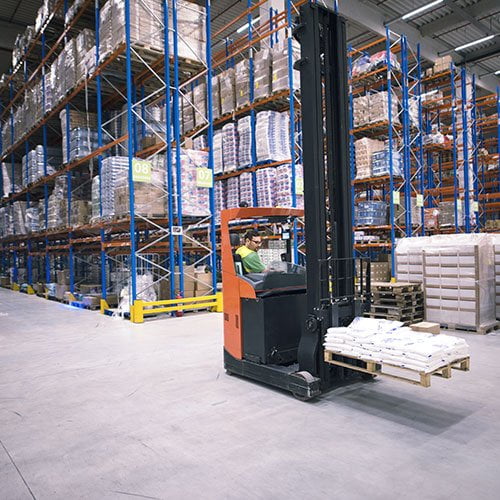Warehouse logistics is commonly the process related to the transportation of goods and the organization of the goods from the warehouse to the facilities designed to receive the product. In reality, the definition of logistics encompasses many more aspects within the operation of a business. To fully understand in the terminology, it is useful to give a definition and study the etymology of the term under consideration. The word logistics comes from the Greek word logistikos which literally means “makes logical sense,” in turn logistikos comes from “lógos” (λόγος), “word” or “order” . Word and logic are in fact two extremely connected concepts, from logic comes word and vice versa, and therefore the ancient Greeks formed this crasis giving birth to logos, that is, making something logical.
There is no definition of logistics that has value over time. As production systems change, so do jobs in logistics and, with them, the meaning of logistics itself. Specifically, the Italian Logistics Association defines logistics as “the set of all those processes of organizational, managerial and strategic order, internal to a company, from supply to final distribution of products.” Instead, according to other sources, the definition seems to be broader: “Logistics is the process of planning, implementing and controlling the efficient and effective flow and storage of raw materials, semi-finished and finished products and related information from the point of origin to the point of consumption with the aim of meeting customer needs.”
In one case as in the other, however, it is clear that logistics does not simply include freight transportation. Rather, much broader areas than this are to be involved: from the raw material supply network to the distribution of goods, through the process of ordering and possibly handling returns. Each of these aspects inevitably goes to affect all the others.
Therefore, to achieve efficient logistics, one must delve into a very complex process. First, thelogistics officer is responsible for the procurement of raw materials and parts, their storage within the warehouse, and replenishment within the departments. At the same time, it is responsible for packing the goods and transporting them through the distribution network. On its careful planning, in today’s highly competitive regime, a company’s entrepreneurial success or failure may depend.
One word, several fields of action
There are different types of logistics, each with its own particularities and tasks. First, inbound logistics or incoming logistics deals with warehouse management, taking care of relations with suppliers and checking stocks of raw materials and parts; internal logistics, on the other hand, concerns the sorting of materials, personnel or information within the respective departments in order to enable smooth production; distribution logistics or transportation logistics manages the distribution network of goods, according to the agreements made between the company and the customer; and finally, return logistics or reverse logistics follows the recovery of returns, their transportation and sorting.
What is the logistics and transportation ccnl?
The National Collective Bargaining Agreement (CCNL) of the logistics, freight transport and forwarding industry . regulates the employment relationship of personnel employed by forwarding companies, including those called transit and customs, companies engaged in road haulage of goods on behalf of third parties, logistics and auxiliary transport services companies, combined transport companies, companies engaged in the activity of electronic commerce, air agencies and public maritime brokers engaged in this activity promiscuously with that of forwarding, by general warehousing companies, terminals, warehouses, distribution centers and intermodal centers on behalf of third parties, companies producing refrigerant energy, companies providing logistics services including integrated with production support activities, operating individually or within interport, self-port, port and airport infrastructures, with the sole exclusion of companies covered by the National Collective Labour Agreement for port workers.






